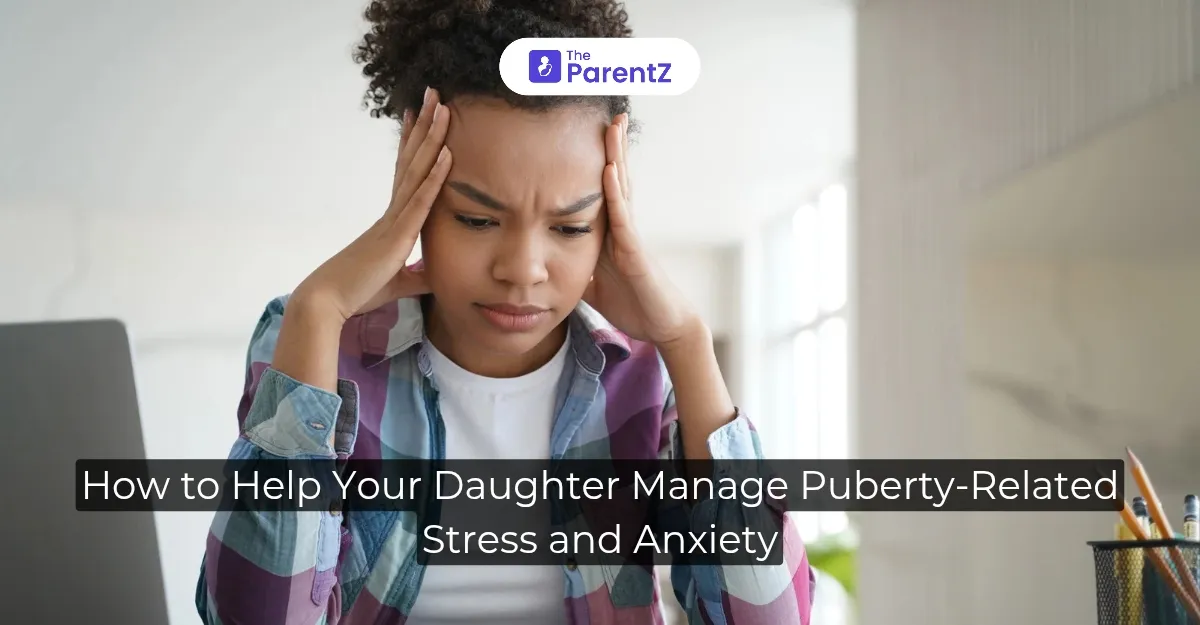Puberty is a rollercoaster of emotions, physical changes, and new experiences. For many girls, it’s a time of excitement and growth, but it can also bring stress, anxiety, and self-doubt. As a parent, your role is crucial in helping her navigate these changes with confidence and ease.
So, how can you support your daughter through this phase? Let’s dive into some practical ways to help her manage puberty-related stress and anxiety.
1. Create an Open and Supportive Environment
One of the most important things you can do is foster open communication. Your daughter should feel comfortable talking to you about anything whether it’s her first period, mood swings, or body image concerns.
• Be approachable – Let her know she can come to you anytime without fear of judgment.
• Listen actively – Sometimes, she just needs to vent. Avoid interrupting or offering solutions right away.
• Share your own experiences – Talking about your puberty experience (in an age-appropriate way) can make her feel less alone.
• Encourage questions – Let her ask about bodily changes, emotions, or anything else she’s curious about.
2. Educate Her About Puberty and Emotional Changes
Knowledge is power! Many girls feel anxious simply because they don’t understand what’s happening to their bodies and emotions.
• Explain the physical changes she’ll experience breast development, menstruation, acne, and growth spurts.
• Talk about the emotional ups and downs that come with hormonal shifts, like mood swings or sensitivity.
• Reassure her that everyone goes through this and that these changes are normal.
• Provide reliable resources like books or websites about puberty.
3. Normalise Mood Swings and Emotional Highs & Lows
Puberty hormones can cause emotional turbulence. One moment she’s happy, and the next, she’s frustrated or overwhelmed. Let her know that these emotions are valid and temporary.
• Teach her to identify triggers – Is she more irritable before her period? Does school stress make things worse?
• Encourage healthy emotional expression – Journaling, drawing, or talking it out can help.
• Help her develop coping strategies – Deep breathing, mindfulness, or taking a walk can ease overwhelming emotions.
• Remind her that it’s okay to cry – Sometimes, a good cry is exactly what she needs.
4. Promote Healthy Lifestyle Habits
A healthy body supports a healthy mind. Poor sleep, junk food, and lack of exercise can worsen stress and anxiety.
Encourage Nutritious Eating
• A balanced diet rich in fruits, veggies, whole grains, and proteins can help regulate mood and energy levels.
• Foods high in omega-3s (like nuts and seeds) may help reduce anxiety.
• Limit caffeine and sugar, which can trigger mood swings and anxiety.
Prioritize Sleep
• Aim for 8-10 hours of sleep per night.
• Establish a bedtime routine – Reading, warm showers, and dim lighting can help her relax.
• Limit screen time before bed since blue light can interfere with sleep.
Encourage Physical Activity
• Exercise releases endorphins, which are natural mood boosters.
• Activities like yoga, dance, swimming, or even a simple walk can reduce stress.
• Make exercise fun—join her for a weekend bike ride or a family game of basketball.
5. Teach Her Stress Management Techniques
Since puberty can be overwhelming, help her develop tools to handle stress effectively.
• Deep breathing exercises – Teach her simple techniques like the 4-7-8 breathing method.
• Mindfulness and meditation – Apps like Headspace or Calm can help her manage anxiety.
• Gratitude journaling – Writing down three things she’s grateful for daily can shift her mindset.
• Music therapy – Listening to calming or uplifting music can instantly improve her mood.
6. Help Her Navigate Social Pressures
Friendships and peer pressure become more intense during puberty. Many girls feel anxious about fitting in, dealing with mean comments, or handling social media.
• Remind her that she doesn’t need to please everyone – It’s okay to say no to things that make her uncomfortable.
• Encourage healthy friendships – Teach her to identify friends who uplift and support her.
• Discuss social media and body image – Help her understand that most online images are edited and unrealistic.
• Role-play how to handle peer pressure – Practice responses for difficult situations, like saying no to gossip or standing up for herself.
7. Address Body Image and Self-Confidence Issues
As her body changes, she might struggle with self-esteem. Comparing herself to others (especially on social media) can make her feel inadequate.
• Celebrate her uniqueness – Point out her strengths beyond appearance.
• Limit negative self-talk – If she criticises her looks, counter it with positive affirmations.
• Encourage self-care – Skincare routines, hair care, and dressing in ways that make her feel confident can boost self-esteem.
• Lead by example – Avoid making negative comments about your own body in front of her.
8. Be Prepared for Menstrual Anxiety
The thought of getting her period at school or in public can cause major stress. Ease her worries by preparing her in advance.
• Create a “period kit” with pads, tampons, wipes, and an extra pair of underwear.
• Teach her how to track her cycle using a period app.
• Reassure her that leaks and cramps are normal and not something to be embarrassed about.
• Normalise periods—talk about them openly, so she doesn’t feel awkward or ashamed.
9. Watch for Signs of Severe Anxiety or Depression
Some stress and mood swings are normal, but if you notice extreme changes, it might be time to seek professional help.
Signs to look for:
• Persistent sadness, irritability, or hopelessness
• Loss of interest in activities she used to enjoy
• Changes in appetite or sleep patterns
• Difficulty concentrating
• Withdrawing from family and friends
• Expressing thoughts of self-harm or worthlessness
If you notice these red flags, consult a therapist or counselor. Mental health is just as important as physical health!
10. Be Patient and Keep the Bond Strong
Puberty can be challenging for both of you. Some days, she may push you away, and other days, she may need extra support. Stay patient and keep showing up for her.
• Plan quality time – Whether it’s movie nights, coffee dates, or baking together, keep your bond strong.
• Respect her privacy – Give her space when she needs it but let her know you’re always there.
• Remind her she’s loved – Even if she rolls her eyes at your hugs, deep down, she appreciates them.
Final Thoughts
Puberty is a wild ride, but with the right guidance, your daughter can navigate it with confidence. The key is to create a supportive environment where she feels safe, understood, and empowered. By educating her, helping her manage stress, and nurturing her self-esteem, you’re setting her up for a healthy and positive transition into adolescence. Stay patient, stay kind, and most importantly—keep being her biggest cheerleader!





Be the first one to comment on this story.